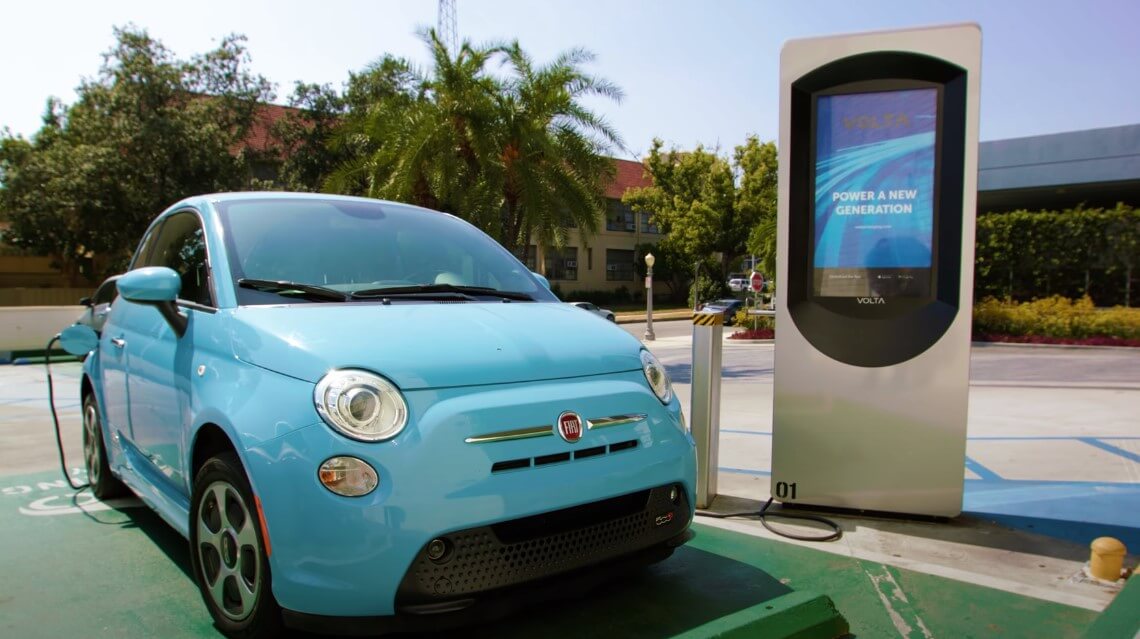Whether you’re drawn to North Carolina’s vibrant cities and technological hubs or South Carolina’s historic charm and favorable taxation of retirement income, there’s much to explore.
North Carolina tends to have a slightly higher cost of living but also boasts a robust education system and a higher graduation rate.
On the other hand, South Carolina may offer a lower property tax rate and an overall subtropical climate that appeals to those looking for milder winters and hot summers.
By assessing these and other factors, you can better determine which Carolina is the right fit for your lifestyle and aspirations.
Key Takeaways
- NC offers varied climates; SC has a consistently subtropical climate.
- NC boasts mountains to coastlines; SC is known for its coastal and lowland beauty.
- NC is slightly higher due to housing and taxes; SC offers lower property taxes and overall costs.
- Both states have resilient job markets; NC is diverse with tech and banking, SC excels in manufacturing and tourism.
- North Carolina is known for higher-ranked universities and a robust education system; SC focuses on improving its education outcomes.
- NC shows improvement in healthcare quality; SC struggles with higher costs and accessibility issues.
- North Carolina offers technological hubs and vibrant cities; SC is rich in historic charm and subtropical living.
- NC invests in EV charging and rail upgrades; SC focuses on comprehensive transportation improvements.
- North Carolina generally has lower crime rates; SC is working on reducing its higher crime rates.
- NC displays a mix of political ideologies; SC leans more consistently conservative.
Geographic Comparison
In my examination of North Carolina and South Carolina, I observe distinct geographic features that influence each state’s climate and natural landscapes.
Climate and Weather
North Carolina presents a varied climate across its regions. My research points to cooler temperatures in the western mountainous areas, with the coastal plains enjoying milder weather. Summers are warm, and winters are generally mild, a pattern I’ve noted from a source detailing the state’s climate diversity.
On the other hand, South Carolina maintains a more consistently subtropical climate. From my understanding, this translates to hotter and humid summers with again, mild winters, according to an insight into the state’s subtropical conditions.
Natural Landscapes
My exploration reveals that North Carolina boasts an impressive range of natural landscapes. From the Appalachian Mountains to the scenic Outer Banks, the diversity in elevation and terrain offers a rich tapestry of natural beauty.
South Carolina, as I’ve learned, showcases its own charm with picturesque beaches like Myrtle Beach and the historic,lowcountry regions. The state’s natural landscapes are more focused on coastal and lowland environments, providing distinct vistas that differ from its northern neighbor.
Cost of Living
When deciding between North Carolina (NC) and South Carolina (SC) as your new home, it’s essential to weigh the cost of living in each state. This includes looking at housing affordability, tax implications, and daily living expenses. Let’s dive into these aspects to help you make a well-rounded decision.
Housing Affordability
In North Carolina, you might find yourself paying a bit more for housing than in South Carolina. The median home price in NC tends to be higher, reflecting the state’s investment in community infrastructure, including schools and higher education institutions.
The actual cost can vary widely depending on where you choose to live. On the flip side, South Carolina offers more budget-friendly housing options, potentially saving you a significant amount on your monthly bills.
For example, the median home cost in South Carolina might be around $284797, whereas in North Carolina, it could be closer to $318266, though these figures can fluctuate based on the specific area according to Zillow.
It depends on the area you live in those states. For example, living in Charlotte is more expensive than living in Columbia, South Carolina by about $10,000 a year. Obviously, it would be different for different cities. Overall, I think NC may be slightly more expensive. If you are looking at specific cities, that will be different. (For example, Hilton Head Island, South Carolina is 23.5% more expensive than Charlotte, North Carolina). Overall, SC is 21st in lowest cost of living and NC comes in around 23rd. As a general rule, the suburbs or rural areas are less expensive than the big cities.
according to this Quora discussion.
Taxation
Tax-wise, South Carolina is often seen as more appealing, especially for retirees, thanks to its lower personal income and property tax rates. For instance, South Carolina’s personal income tax rates range from 0% to 7%, depending on your income level according to Forbes. While property taxes are among the lowest in the country, with an effective rate of about 0.57%. North Carolina, however, employs a flat income tax rate, currently at 4.75%, which might benefit higher-income individuals as highlighted by SmartAssets. The property tax rate in NC is also relatively low, with an average effective rate of 0.77%.
Everyday Expenses
For Both States:
- Groceries: Approximately $300 to $400 per month for a standard household.
- Transportation: Around $150 to $200 monthly, influenced by commute distances and maintenance.
- Utilities: Typically $100 to $200 per month, fluctuating with seasonal changes and consumption.
Economy and Employment
Both states offer unique job markets and industries that are growing and providing new opportunities.
Job Markets
South Carolina’s job market has shown resilience following the pandemic, with less of an impact on employment compared to the national average. Notably, the state has seen economic growth as we entered 2024, suggesting a booming job market according to BLS.
North Carolina’s job market, comparatively, encompasses a range of industries across its diverse geography. The broad measure of labor underutilization, known as U-6, was 6.2 percent in 2023, aligning closely with the national rate, which indicates a stable employment climate.
Industries and Opportunities
In South Carolina, the economy thrives on several key industries including manufacturing, especially automotive and aerospace, tourism due to the state’s beautiful beaches and historical sites, and agribusiness. Major players like Boeing and BMW have facilities here, reflecting the state’s strength in manufacturing and export.
North Carolina boasts a diverse array of industries that drive its economy. The Research Triangle Park (RTP) area is a hub for technology and research, drawing in a multitude of tech and pharmaceutical companies. Additionally, North Carolina has strong banking, healthcare, and educational sectors, with a notable presence of financial services firms in cities like Charlotte.
Education Systems
When deciding between North Carolina and South Carolina, the education systems are a pivotal factor. Both states offer unique advantages in higher education and public schooling that cater to different needs and preferences.
Higher Education
I find that North Carolina is recognized for its reputable higher education institutions, which include top-ranked universities such as Duke University and the University of North Carolina at Chapel Hill. This state’s commitment to education is evident in its goal to have the highest proportion of college graduates in the world, as shown on the United States Education Dashboard. which typically fall into the top 100 but not as high as their NC counterparts.
In South Carolina, universities like Clemson and the University of South Carolina also provide comprehensive higher education options. Which typically fall into the top 100 but not as high as their NC counterparts.
Public School Systems
North Carolina’s public school systems offer diverse educational experiences influenced by the geographic regions of the state. According to WalletHub’s analysis, North Carolina ranks 33rd overall in the US, indicating room for improvements in certain areas such as quality and safety.
On the other hand, South Carolina’s schools have distinct characteristics, with a focus on subtropical living that influences the school culture. However, it’s essential to note the state’s standing in education, which can be a deciding factor for many families. South Carolina faces its own challenges, striving to improve its position and educational outcomes.
Healthcare Services
When considering healthcare services, I find it important to look at factors such as quality, accessibility, and cost. In my analysis, I highlight the differences that may sway someone’s decision between North Carolina and South Carolina.
Quality of Healthcare: The quality of healthcare is a vital concern. It’s reported that the healthcare outcomes in North Carolina are varied but have shown improvement in recent years. On the other hand, South Carolina faces challenges, ranking lower in areas like cost, accessibility, and outcome as per a WalletHub study.
Accessibility: Accessibility to healthcare services can influence decision-making. North Carolina boasts several renowned medical institutions with a presence of major healthcare systems. I’ve observed that South Carolina, while improving, still works towards increasing accessibility, especially in the more rural areas.
Cost: Healthcare costs are an unavoidable aspect to consider. Forbes highlights that Southern states, including South Carolina, are among the worst for healthcare costs, which could be a deterrent for some people.
A report from ValuePenguin mentions that the “Silver Classic” health insurance plan from AmeriHealth Caritas Next is considered the best cheap health insurance in North Carolina, costing as little as $428 per month.
Here’s a simple comparison:
| Factor | North Carolina | South Carolina |
|---|---|---|
| Quality | Varied results with noted improvements | Often ranks lower in healthcare outcomes |
| Accessibility | High with several established systems | Improving but still has rural access issues |
| Cost | Competitive costs with other states | Higher costs in comparison to some states |
While my presentation of healthcare services remains neutral, these distinctions are essential for anyone evaluating North or South Carolina as their potential new home.
Culture and Lifestyle
I’ll walk you through the characteristics of recreational activities, the depth of cultural attractions, and the storied sports rivalries that define each state’s unique social fabric.
Recreational Activities
North Carolina presents a diverse range of outdoor activities due to its unique geography. From the lofty peaks of the Appalachian Mountains to the serene beaches of the Outer Banks, outdoor enthusiasts revel in hiking, mountain biking, and beachcombing. Meanwhile, South Carolina is a haven for beachgoers and golfers, with Myrtle Beach’s sunny shores and numerous golf courses.
Cultural Attractions
My experience has been that North Carolina’s cultural scene is anchored by the Research Triangle’s plethora of universities, museums, and art galleries. Cities like Charlotte and Raleigh foster a vibrant arts scene with live performances and festivals. Similarly, in South Carolina, Charleston’s historical charm and rich history provide a backdrop for an array of cultural experiences, from historic plantations to the Spoleto Festival USA.
Sports and Rivalries
Sports are a cornerstone of both states, with a keen rivalry between my home teams. College basketball is particularly intense in North Carolina with powerhouses like Duke and UNC Chapel Hill. South Carolina offers its own brand of fervor, particularly for college football, with the Clemson Tigers and the University of South Carolina Gamecocks engaging in passionate annual showdowns.
Transportation and Infrastructure
In my analysis of transportation and infrastructure, I’ve noted clear differences between North Carolina and South Carolina. My focus is mainly on the impact of recent legislative measures and their benefits to the states’ transportation systems.
North Carolina has been allocated significant funds to aid in transforming its transportation landscape. According to the Bipartisan Infrastructure Law Fact Sheet, the state is poised to receive substantial support for the development of an electric vehicle (EV) charging network. North Carolina is also set to modernize and expand its passenger rail network, enhancing connectivity and reducing travel times.
Personal Vehicle:
- Gasoline: Average price per gallon ranges from $2.50 to $3.50.
- Vehicle Maintenance: Average costs can range from $500 to $700 annually for regular maintenance.
Public Transit:
- Monthly Pass: Costs vary by city, but on average, $50 to $100 in major urban areas.
Ride-Sharing (e.g., Uber, Lyft):
Average Cost: Around $2 base fare plus $1 to $2 per mile.
Infrastructure Investment Highlights for North Carolina:
- EV Charging Network Expansion: $109 million
- Rail Network Upgrades: Access to grants from $2.5 billion fund
South Carolina:
In South Carolina, the focus is similarly progressive with over $2.1 billion earmarked for wide-ranging transportation improvements. The Bipartisan Infrastructure Law states that these investments cover roads, bridges, and public transportation, aiming to fortify and enhance the efficiency of the state’s transit infrastructure.
Personal Vehicle:
- Gasoline: Average price per gallon ranges from $2.40 to $3.40, slightly lower than NC due to lower state gas taxes.
- Vehicle Maintenance: Similar to NC, with average costs ranging from $500 to $700 annually.
Public Transit:
- Monthly Pass: Generally, $40 to $90, depending on the city and services offered.
Ride-Sharing:
- Average Cost: Starts with a base fare of about $2 plus $1 to $2 per mile, comparable to NC.
Infrastructure Investment Highlights for South Carolina:
- Transportation Investment: over $2.1 billion
- Roads, Bridges, and Public Transit: Comprehensive upgrades
Both states show commitment to improving their transportation and infrastructure. My findings underscore the efforts to increase efficiency, safety, and prepare for future technologies. These developments broadly indicate that whichever state one might choose, they would be privy to transportation systems that are clearly looking forward.
Safety and Crime Rates
When I compare North Carolina and South Carolina in terms of safety and crime rates, it’s crucial to examine the most recent statistics and trends. In South Carolina, there was a decrease in violent crime, with incidents dropping slightly from 5.3 per 1,000 people to 5.2. Nevertheless, the state still has the highest rates of violent and property crime in the South Atlantic region.
- Violent Crime in SC: 5.2 incidents per 1,000 people (decreased) according to SafeWise
- Property Crime in SC: Fell from 27.2 per 1,000 people to 25.9
In contrast, North Carolina’s crime rates appear to be lower when looking at both violent and property crime categories compared to its southern neighbor.
- Violent Crime in NC: 4.3 incidents per 1,000 people as per Vivint
- Property Crime in NC: Lower rate than SC
When considering the safety of cities, it’s valuable to note that South Carolina’s safest cities have made significant progress in reducing crime. As for North Carolina, the emphasis is often on community safety initiatives that contribute to a sense of well-being.
If safety and crime are significant factors in deciding between North Carolina and South Carolina, reviewing these trends and understanding the context of each state’s crime rates is essential. It’s equally important to consider personal safety preferences and the specific areas within each state, as rates can vary widely by region.
Political Climate
When considering North Carolina and South Carolina, I note a distinction in their political tendencies, evidenced by historical voting patterns and recent political landscapes.
North Carolina:
- Electoral oscillation between parties, demonstrating a swing state status.
- A mixture of conservative and liberal representation in both the state government and federal level positions.
- Governance: Historically diverse, with instances of flipped control between Democrats and Republicans.
South Carolina:
- More consistently leans Republican in federal elections.
- Strong conservative representation in the state legislature and in Congress.
- Policies: Reflect a more conservative ideology with tax structures and business regulations.
Both states exhibit pride in their political engagement and a dedication to community values. However, each carries distinct legislative priorities that frame their approach to economic, environmental, and social issues.
Frequently Asked Questions
Final Words
Choosing between North Carolina and South Carolina involves a careful consideration of various factors including climate, cost of living, job market, education, healthcare, transportation, safety, and political climate.
North Carolina offers a diverse landscape with technological hubs and a robust education system, making it ideal for those seeking a blend of urban and natural environments.
On the other hand, South Carolina boasts historic charm, lower living costs, and a subtropical climate, appealing to those looking for a more relaxed lifestyle and favorable conditions for retirees. Ultimately, your decision will depend on personal preferences, lifestyle aspirations, and priorities in terms of employment, education, and quality of life.
























